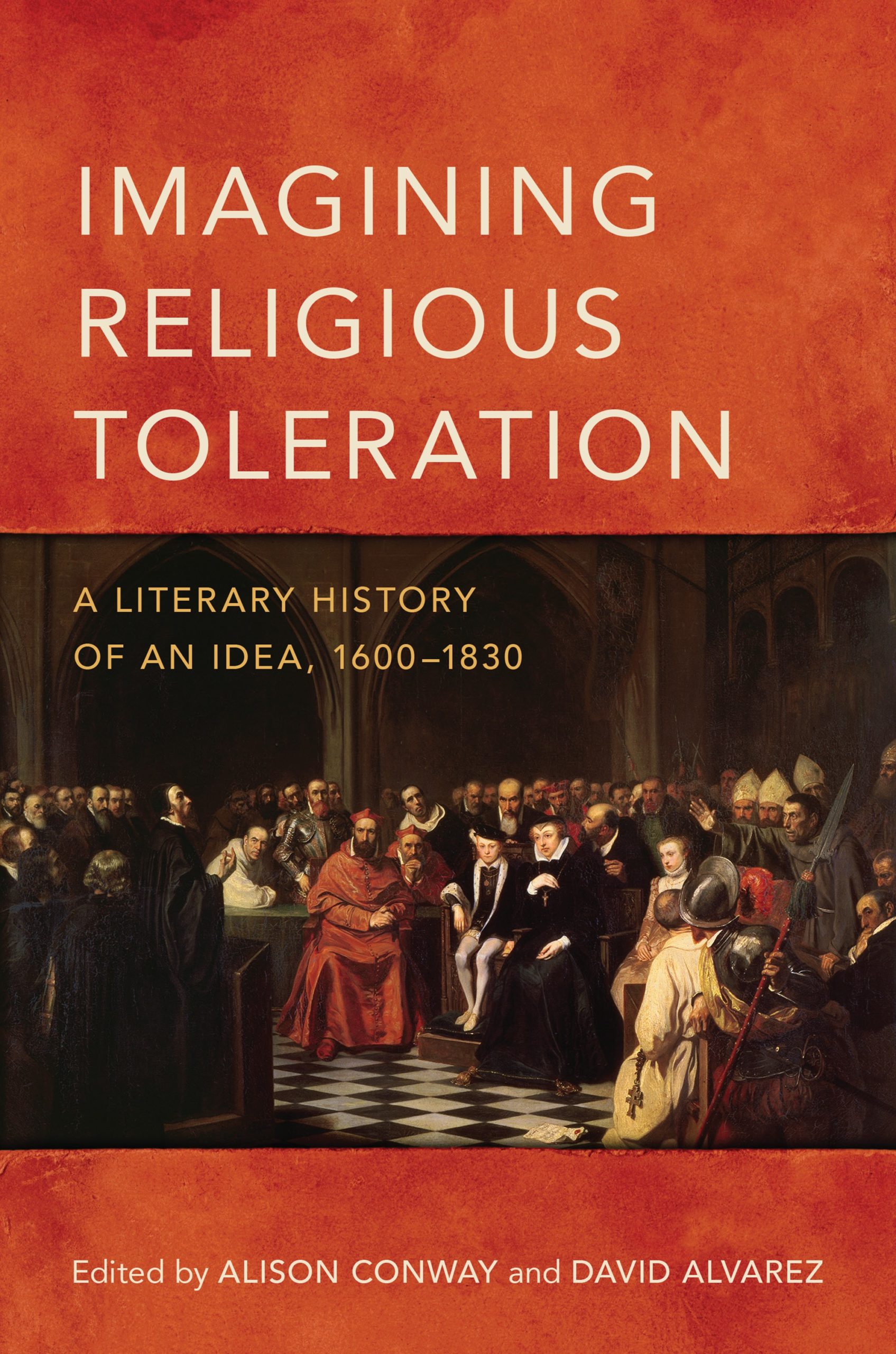- Contributor
- Editors
- Publisher
- Year
- ISBN
- Language
- Andrew McKendry
- Alison Conway and David Alvarez
- University of Toronto Press
- 2019
- 9781487501792
- English
Formerly a site of study reserved for intellectual historians and political philosophers, scholarship on religious toleration, from the perspective of literary scholars, is fairly limited. Largely ignored and understudied techniques employed by writers to influence cultural understandings of tolerance are rich for exploration. In investigating texts ranging from early modern to Romantic, Alison Conway, David Alvarez, and their contributors shed light on what literature can say about toleration, and how it can produce and manage feelings of tolerance and intolerance. Beginning with an overview of the historical debates surrounding the terms “toleration” and “tolerance,” this book moves on to discuss the specific contributions that literature and literary modes have made to cultural history, studying the literary techniques that philosophers, theologians, and political theorists used to frame the questions central to the idea and practice of religious toleration. Tracing the rhetoric employed by a wide range of authors, the contributors delve into topics such as conversion as an instrument of power in Shakespeare; the relationship between religious toleration and the rise of Enlightenment satire; and the ways in which writing can act as a call for tolerance.
McKendry analyzes how conceptions of blindness, and disability more broadly, shaped early modern attitudes towards religious difference, error, and toleration. At a moment when spiritual blindness was regularly considered the ‘natural’ state of fallen mankind, making judgments about the capacities or status of others could be exposed as a kind of “embarrassingly ableist gaze—a secularizing ownership over our bodies (particularly our eyes) that was disabling in the most egregious sense.” While charity toward “the weak and erroneous” could function as a strategically useful forbearance, the ableist privilege this tolerance involves was often impugned in religious writing, generating moments of uncertainty and misrecognition that might offer, McKendry argues, an alternative to the liberal tradition. But such “potentially conciliatory continuities of disability,” he suggests, “are inhibited under the regulatory frameworks of liberalism,” which reformulates religious identity in binaries of conformity and non-conformity, compulsion and freedom—a dynamic staged in John Milton’s Samson Agonistes. Reading the tropes of disability and ableism as they were developed by seventeenth-century religious writers allows us to better understand, today, “how justice is distributed, how exceptions are defined, and where suffering takes place.” By showing us how seventeenth-century readers framed the nature and implications of disability, McKendry illustrates how to interrogate the epistemological assumptions that subtend our current conceptions of toleration and religious difference
- Reviews
Andrew McKendry draws from a rich selection of sixteenth- and seventeenth-century texts to locate toleration of religious dissent within the discourse of disability, where religious difference was conceptualized as spiritual “blindness” and the spiritually “ignorant” held disputed degrees of culpability based on paradigms of ability and autonomy” (61). McKendry’s essay is particularly attuned to the literary interplay between literal and symbolic blindness, such as in John 9, where the Pharisee’s ableist ‘misrecognition’ of physically blind man is itself spiritually ‘disabling,’ and Milton’s Samson Agonistes contrasts the ‘factual errors of the Philistines and the [physical] blindness of Samson himself’ (73) … Alison Conway and David Alvarez’s collection offers a variety of useful theoretical tools for reconceptualizing religious toleration … While the volume’s various conceptual models consider a range of historical texts from the early modern, eighteenth century, and Romantic periods, its provocative essays hold contemporary relevance in exploring issues surrounding religious pluralism and secularity today.


